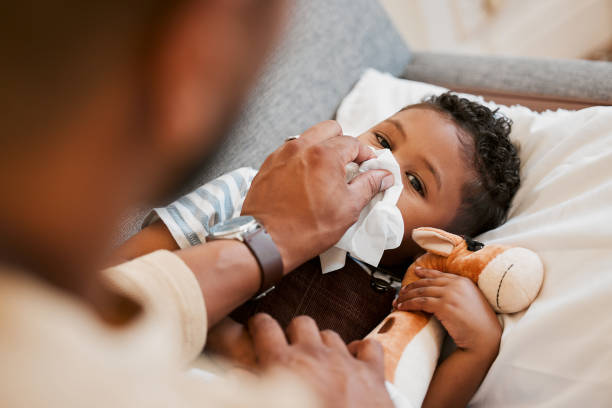
How to know when your baby has cold
Recognizing when your baby is feeling cold is crucial to ensure their comfort and well-being. Here are some signs to help you determine if your baby is cold:
Check the Temperature:
Feel your baby’s neck, hands, and feet. If they feel cool to the touch, your baby may be cold.
Observing Behavior:
Pay attention to your baby’s behavior. If they are fussy, irritable, or crying more than usual, it could be a sign of discomfort from being too cold.
Check the Skin Color:
Look at your baby’s skin color. If it appears pale or bluish, it may indicate that they are too cold.
Monitor Body Language:
Watch for signs of shivering or trembling, which are natural responses to feeling cold and an attempt by the body to generate heat.
Feel the Nose and Ears:
The nose and ears are often more exposed and sensitive to temperature changes. If they feel cold to the touch, your baby might need an extra layer.
Check Clothing:
Ensure that your baby is appropriately dressed for the ambient temperature. Check if their clothing is damp, as wet clothes can make them feel colder.
Touch the Back of the Neck:
Feel the back of your baby’s neck, as it is a sensitive area. If it feels cold, they may need an extra layer or a warmer environment.
Use a Baby Thermometer:
Utilize a baby thermometer to check your baby’s body temperature. Make sure to follow the recommended guidelines for safe temperature ranges.
Monitor Sleep Patterns:
Changes in your baby’s sleep patterns can be indicative of discomfort. If your baby is having trouble sleeping or is waking up frequently, it might be due to feeling too cold.
Use the “One More Layer” Rule:
As a general guideline, dress your baby in one more layer than what you find comfortable in the same environment.
Remember that every baby is different, and it’s important to pay attention to your baby’s individual cues. Dressing them in layers allows you to adjust their clothing based on the surrounding temperature. If you ever have concerns about your baby’s comfort or health, consult with your pediatrician for personalized advice.